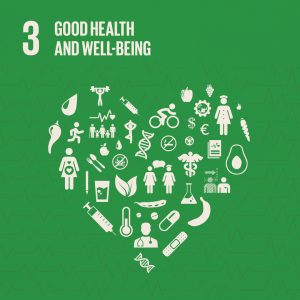“Health is a state of complete physical, mental and social well-being and not merely the absence of disease or infirmity.” World Health Organization.
One of the most important outcomes of the COVID pandemic across the United States and beyond has been the realization that the health and well-being of people comprising campus communities are of paramount importance to fulfilling institutional missions.
This recognition and reminder led to the creation of the U.S. Health Promoting Campus Network in 2020, a learning community organized to facilitate the creation of health-promoting campuses. Auburn is a USHPCN member.
Health-promoting campuses integrate their array of health and wellness initiatives, along with other campus activities that impact health and wellbeing, into an integrated, systemic whole, embedding health and wellbeing into all aspects of campus culture.
This is a much broader framework than the individual programs that support personal health of individuals or groups, commonly referred to as wellness. Well-being considerations also include the places where we work, play, and live, and planetary ecosystem health upon which we all depend for our survival and well-being. All of these are aspects of health and well-being.
The need for a more comprehensive, integrated approach to health and well-being has been discussed by campus professionals for nearly forty years. Campus health, recreation, and student affairs officers – under the auspices of their professional associations, American College Health Association (ACHA), National Intramural-Recreational Sports Association (NIRSA), and Student Affairs Administrators in Higher Education (NASPA), respectively – have since the 1980s been having conversations about the need to systematize, amplify, and integrate health and well-being initiatives.
These conversations were catalyzed by the 1986 Ottawa Charter for Health Promotion, which identified as conditions of well-being the achievement of peace, shelter, education, food, income, a stable ecosystem, sustainable resources, social justice, and equity for all of humanity.
In 2015, the Okanagan Charter: An International Charter for Health Promoting Universities and Colleges was created. It calls on institutions to “embed health into all aspects of campus culture and to lead health promotion action and collaboration locally and globally.” The Charter recognizes that health and well-being require a “systems and settings” approach, a holistic design that includes people, places, and the planet. The Charter provides institutions with a learning community, a common language, principles, and a framework to become health-promoting campuses.
When the COVID-19 pandemic exploded, campuses everywhere reeled under extraordinary challenges. As campuses emerged from the pandemic in the fall of 2022, it was clear that, like the broader population as a whole, people comprising campus communities were struggling. The need to prioritize health and well-being was apparent to campus leaders everywhere. Since then, the collective conversation about creating health-promoting colleges and universities has gained momentum.
In the midst of the COVID crisis in 2021, the Geneva Charter for Wellbeing was created. Building on the Ottawa Charter, it “underlies the urgency of creating sustainable well-being societies,” creating equitable health within ecological limits now and for future generations. This is the language of sustainability.
The culture-focused systems and settings approach called for in the Okanagan Charter is a high-potential opportunity to integrate all aspects of campus life and activity through a framework that matters to everyone: health and well-being. Because it is holistic, it addresses everything, from landscape design and management to the food that we eat; from the way buildings are built to walkability; from classroom experiences to transportation systems; from the energy we use to creating a campus culture where everyone feels, in the words of President Roberts, “welcomed, valued, respected, and engaged.”
Approaching sustainability through the lens of health and well-being addresses every sustainability challenge there is since the whole point of sustainability is to generate health and well-being for all of humanity, which means caring for the places and planet upon which humans depend: people, places, planet, prioritized as an integrated whole.
In my view, a powerfully enhanced commitment to health and well-being can be a game changer for everything we care about.
Learn about the SDGs & AU and our contributions related to this post.




